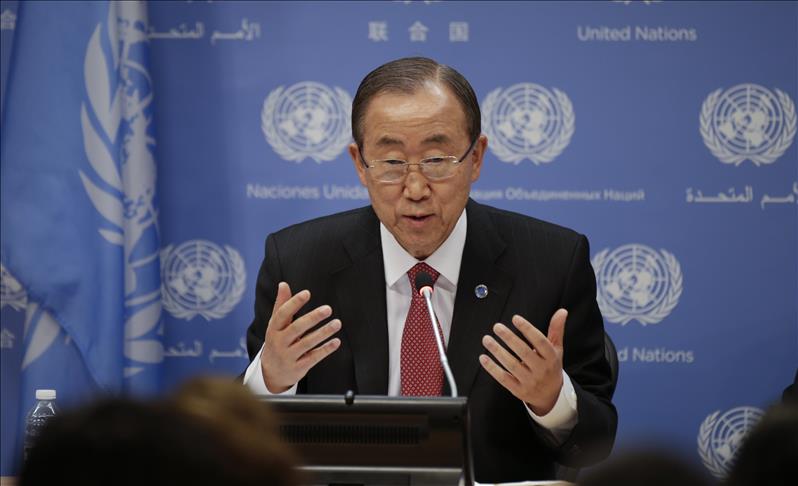
By Mustafa Caglayan
NEW YORK
A global treaty prohibiting the transfer of weapons to human rights’ violators entered into force Wednesday, in a move described as a "new chapter" by the UN secretary-general.
“From now on, the states parties to this important treaty will have a legal obligation to apply the highest common standards to their international transfers of weapons and ammunition," Ban Ki-moon said in a statement.
The Arms Trade Treaty, adopted by the UN General Assembly in 2013, is the first legally-binding global deal that prohibits states from exporting conventional weapons to countries when they know those weapons will be used for genocide, crimes against humanity or war crimes.
Some 60 countries have ratified the treaty, but not the U.S. -- the largest exporter of conventional weapons in the world.
Ban urged all states, "particularly major arms exporters and importers," to join the treaty.
Washington signed the deal in September 2013, but it requires ratification by the Republican-majority Senate. From the beginning, Republican senators have been critical of President Barack Obama's decision to consider the deal.
Russia, the world's second largest arms supplier, is yet to put its signature in the treaty.
UN High Commissioner for Human Rights, Zeid Ra’ad al-Hussein, hailed the deal as a "breakthrough in curbing human rights violations and reducing human suffering."
"The lax regulations covering the trade in conventional weapons and the consequent widespread availability and misuse of arms have had a huge human cost. The unregulated arms trade is one of the main drivers of armed conflict and violence, contributing and facilitating the commission of human rights and humanitarian law violations,” he said in a statement.
The international trade in arms and ammunition is estimated to generate $85 billion annually.
Anadolu Agency website contains only a portion of the news stories offered to subscribers in the AA News Broadcasting System (HAS), and in summarized form. Please contact us for subscription options.







